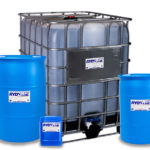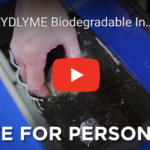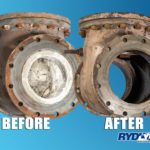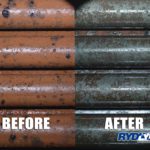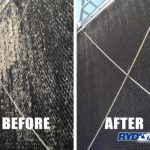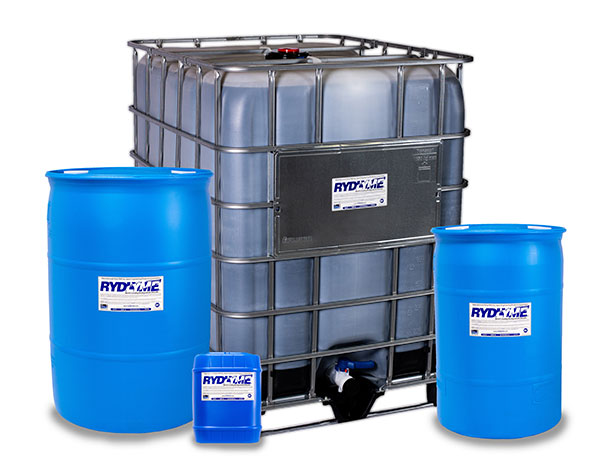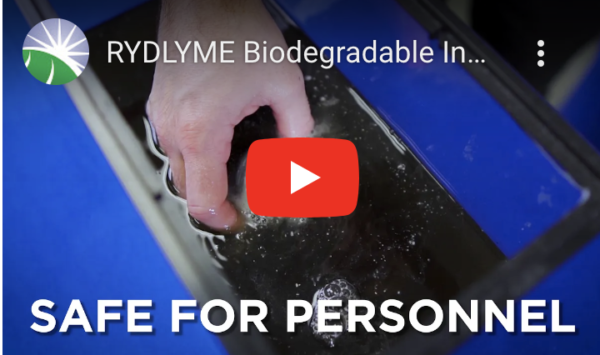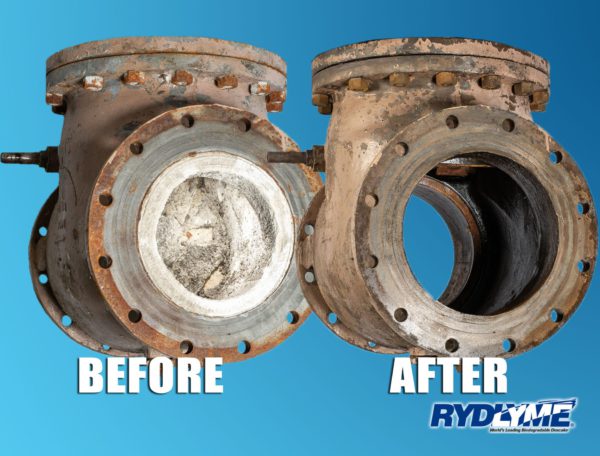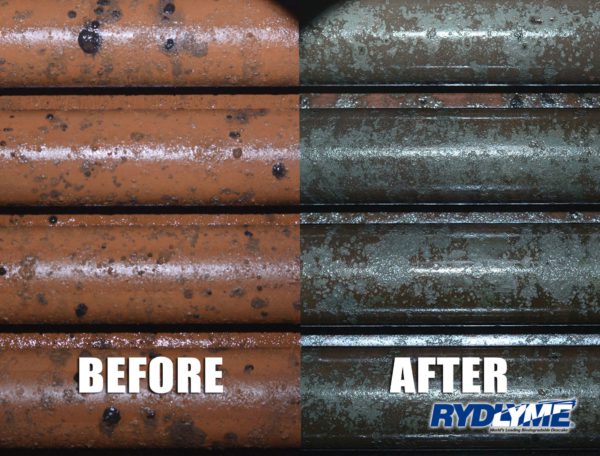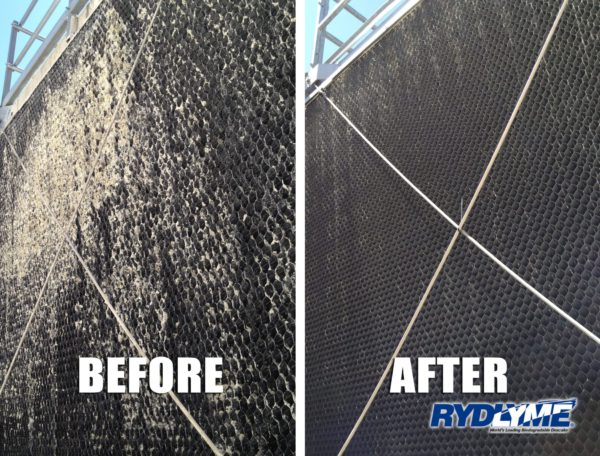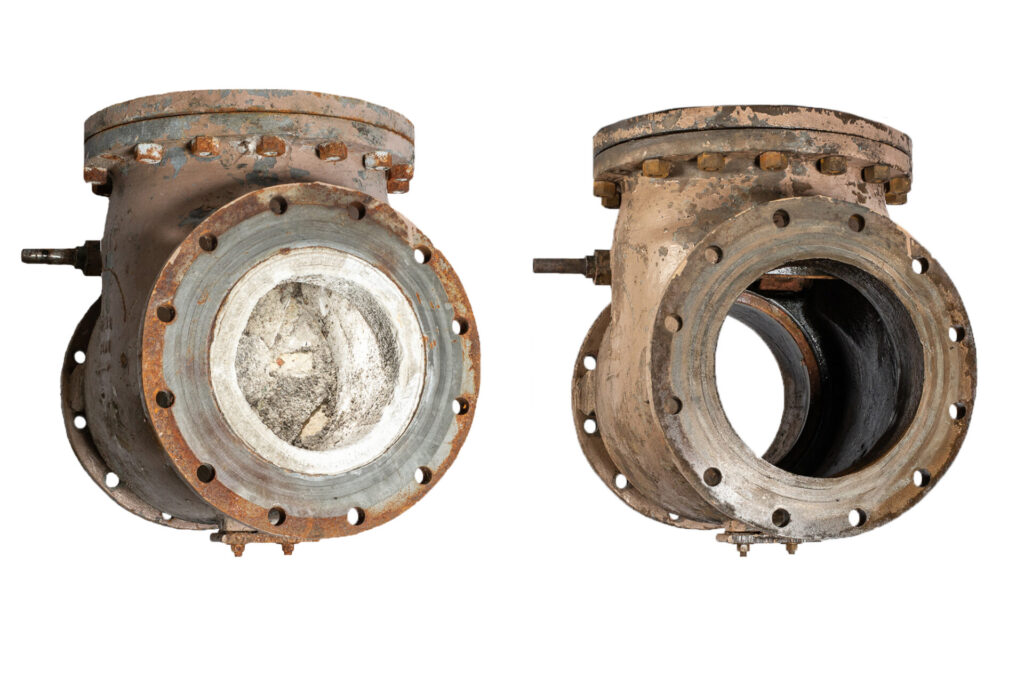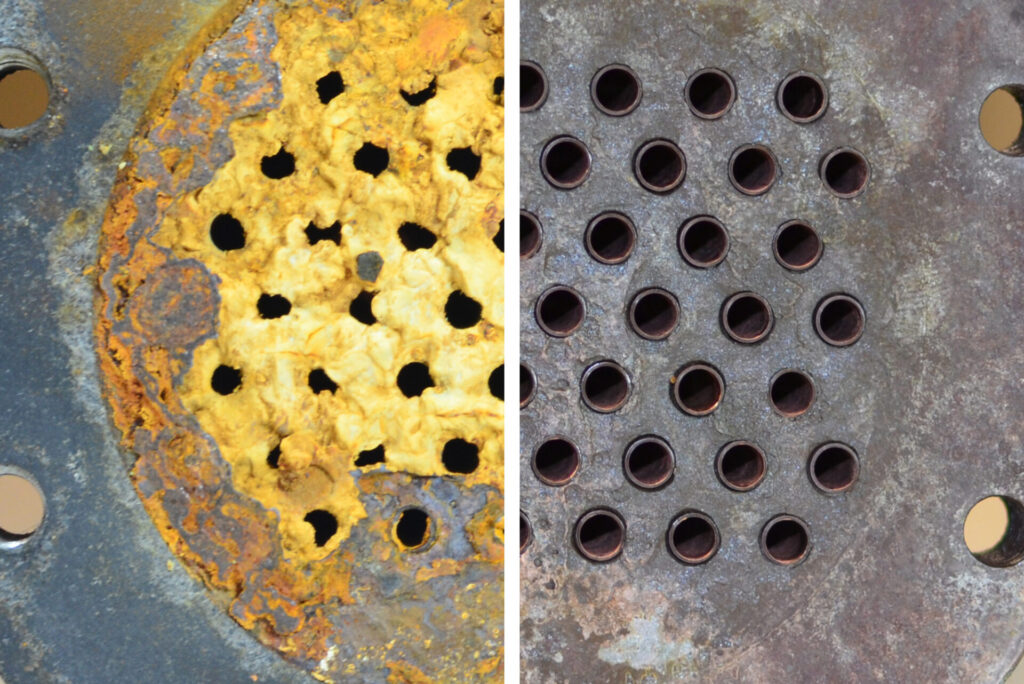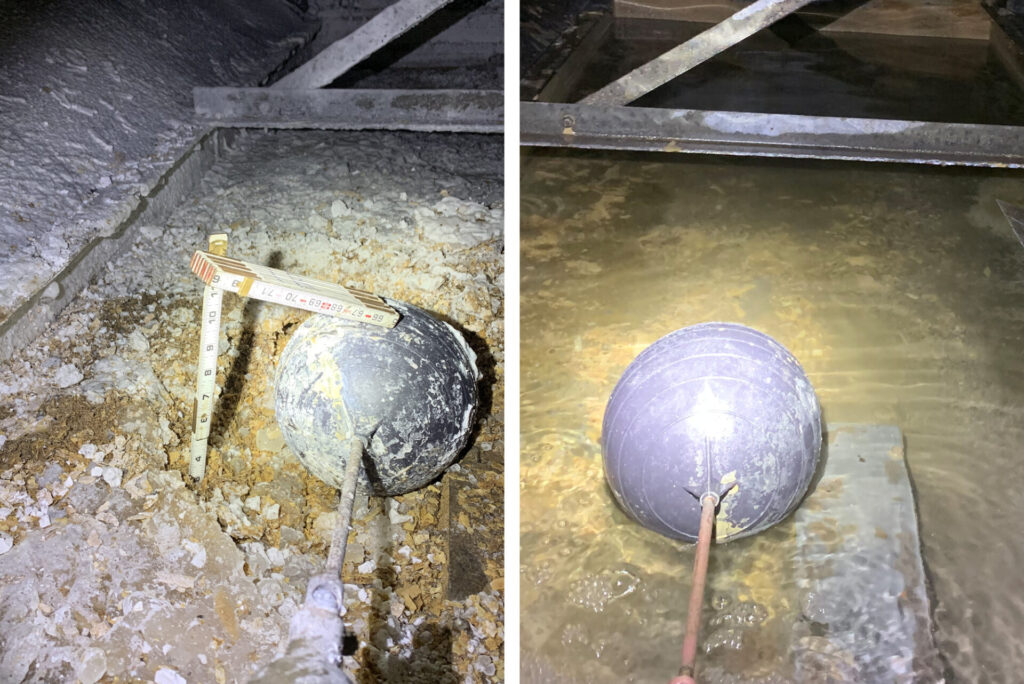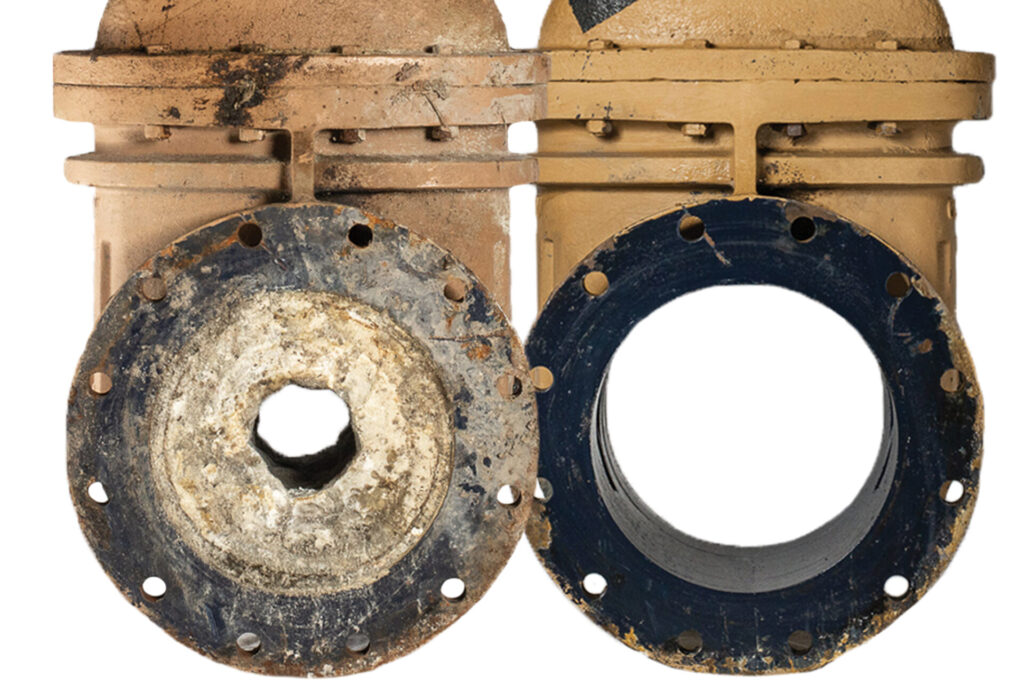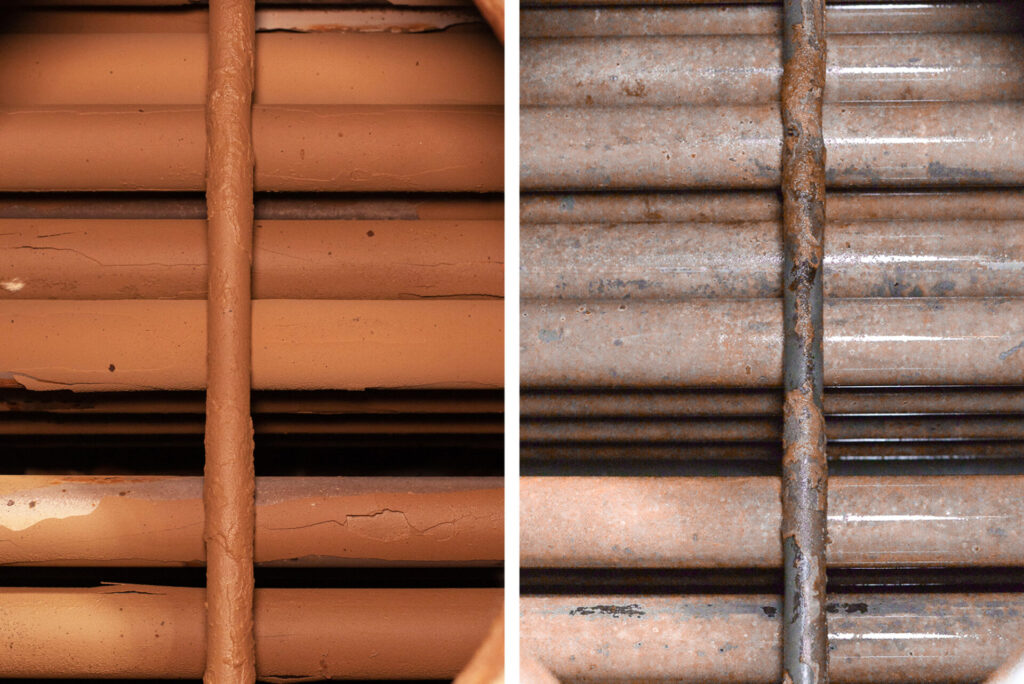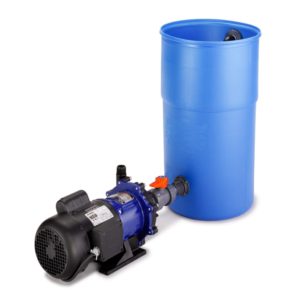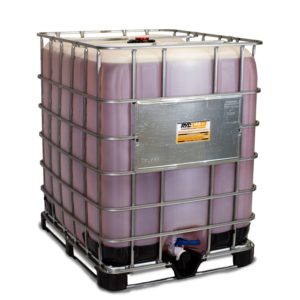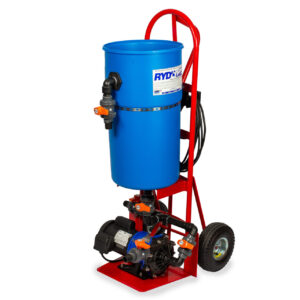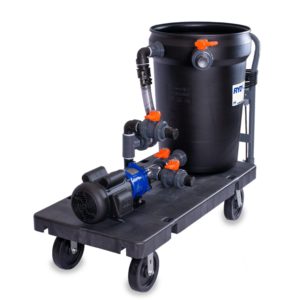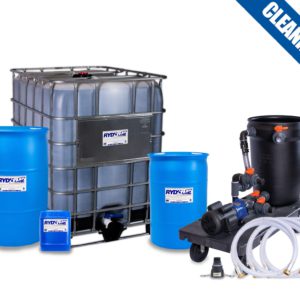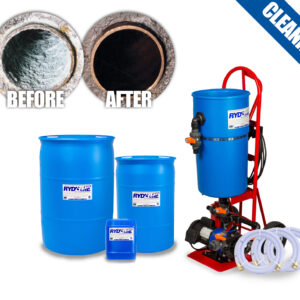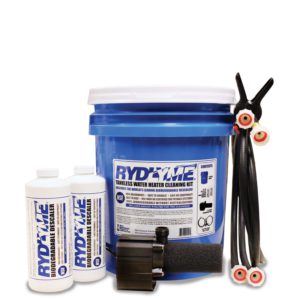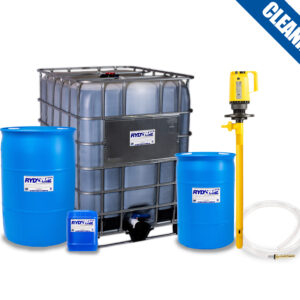Description
RYDLYME
The World’s Leading Biodegradable Descaler
The only descaler you’ll ever need – combining powerful performance with safety.
In stock.
Call today to get more information
on RYDLYME biodegradable descaler.
Tough on Scale, Easy on Equipment.
RYDLYME Descaler
Attributes
Dissolves 2.2 lbs of scale
per gallon used.
Used in numerous
applications.
Non Hazardous and
easy to use.
Improves efficiency and
cuts energy costs.
Clean without
dismantling equipment.
Used by global industries,
military and navy.
Powerful Descaling.
Safe Results. Proven Everywhere.
How RYDLYME Descaler Works
Our proven 4-step process ensures effective water scale removal while protecting your valuable equipment.
Need help with water scale removal?
Our technical experts can help determine the best approach for your specific water scale challenge.
Frequently Asked Questions About RYDLYME Descaler
Get answers to common questions about RYDLYME descaler and how RYDLYME descaler works processes.
Safely and effectively dissolve tough mineral deposits like water scale, limescale, calcium, rust, and struvite from boilers, chillers, cooling towers, condensers, and heat exchangers using RYDLYME Biodegradable Descaler. Recommended by the U.S. Navy and numerous OEMs, this NSF-registered descaling chemical is approved for use in beverage, pharmaceutical, bottling, and food processing facilities. It also meets NSF/ANSI Standard 60 for cleaning potable water systems and is manufactured in an ISO 9001 Certified Facility.
Up to 12 times faster than traditional chemical descalers, this biodegradable solution completes most cleanings in just a few hours. Unlike mechanical methods like brushing, rodding, or hydro blasting, it can be circulated through equipment without the need for time-consuming and expensive dismantling.
Unlike harsh acids and many chemical descalers, this solution is safe to handle—even with bare hands—and requires no special transportation or handling precautions. In the event of a full-strength spill, it can be safely rinsed into standard plant drains without harm.
Compatible with a wide range of materials, including:
Copper, Iron, Fiber, Steel, Brass, Glass, Nickel, Rubber, Plastic, Ceramic, Titanium, Stainless Steel,
and more commonly found in water-operated systems and equipment.
- Biodegradable</li>
- Dissolves 2.2 lbs of scale per gallon of RYDLYME
- NSF/ANSI/CAN 60 certified
- Non-toxic and safe for personnel
RYDLYME 1 Gallon (RYD01) – 10 lbs.
RYDLYME 4 Gallon Case (RYD04) – 38 lbs.
RYDLYME</em> 5 Gallon Jug (RYD05) – 49 lbs.
<em>RYDLYME</em> 30 Gallon Drum (RYD30) – 290 lbs.
<p>RYDLYME</em> 55 Gallon Drum (RYD55) – 520 lbs.
<strong>RYDLYME</em> 330 Gallon Tote (RYD330)</strong> – 3,085 lbs.
- Aerospace Manufacturing
- Cooling Tower Cleaning
- Chiller Cleaning
- Condenser Cleaning
- Heat Exchanger Cleaning
- Hospital Maintenance
- Dissolving Struvite Buildup
- Shell & Tube Heat Exchanger Cleaning
- Boiler Cleaning
- Data Center Cooling Cleaning
- Struvite Removal
- Struvite Removal from RV Tanks
- Vacuum Pump Descaler
- Green Liquor Descaler
- Coffee Maker Descaling
- University Maintenance Descaling
- Oil & Gas Industry Descaling
- Pharmaceutical Descaling
- Food & Beverage Descaling
- Mining Industry Descaling
- Lithium Mining Descaling
-
Q: If the product contains hydrochloric acid (HCl), how can it be safe on skin?
A: While HCl is present at less than 10%, it’s just one part of a carefully balanced formula. The way the ingredients are blended results in a unique combination of safety, biodegradability, and effectiveness—something most other descalers can’t match.
Q: Should I worry about corrosion or hydrogen embrittlement on stainless steel?
A: Not at all. When used properly, the formula will not corrode stainless steel or other materials commonly found in water-based systems. It’s safe on virtually all metals and materials.
Q: Does it need to be used at full strength?
A: Not necessarily. This concentrated solution can be diluted down to 25% depending on your system, the severity of scale buildup, and available cleaning time. Contact us for proper dilution ratios.
Q: How long does the cleaning process usually take?
A: Most jobs are completed within a few hours, but timing depends on system size, buildup severity, and method of circulation. Contact us for a personalized recommendation.
Q: How will I know when the system is clean?
A: You’ll likely notice improved system performance. To confirm, use a pH test or calcium carbonate spot test. Details are available in our Testing the Effectiveness of RYDLYME information sheet.
Q: I’ve seen other descalers dissolve seashells too. What makes this one special?
A: Safety. Look closely—are others doing it in their hand? This solution is safe enough for skin contact, unlike many competitors. You also get peace of mind knowing your team and facility are protected in the event of a spill or mishap.
Q: Is it safe for food and drinking water systems?
A: Absolutely. It’s NSF/ANSI Standard 60-certified for potable water use and NSF-registered for applications in beverage, bottling, pharmaceutical, and food processing industries.
- RYDLYME Story
- Boilers
- Cooling Towers
- Chillers & Condensers
- Heat Exchangers
- Heat Treating
- Aerospace Manufacturing
- Plastics
- Pulp & Paper
- Tire & Rubber
- Vacuum Pumps
- Hospital Maintenance
- Dissolving Struvite Buildup
- University Brochure
- Wastewater Facility
- Tankless Water Heater
- Mining Industry
- Lithium Mining Industry
RYDLYME Technical Specifications
Detailed technical information for engineers and facility managers planning water scale removal projects.
Product Specifications
Applications and Industries
pH Level:
1 – 3
Biodegradable:
Yes
Non-Hazardous:
Yes
NSF Certification:
NSF/ANSI 60/CAN Certified
Application Guidelines
Concentration:
25% – 100% for depending on severity of scale
Temperature Range:
Room temperature
Contact Time:
2-12 hours depending on buildup
Primary Applications
- Cooling Towers
- Boilers
- Condensers
- Wastewater treatment plants
- Municipal water systems
- Food processing facilities
- Rendering plants
- Pharmaceutical manufacturing
- Brewery and distillery operations
- Industrial cooling systems
- Heat exchangers and condensers
- Pumps and piping systems
Safety & Handling
Personal Protection:
Safety glasses, chemical-resistant gloves
Ventilation:
Use in well-ventilated areas
Storage:
Store in original container
Shelf life:
5 years when properly stored
Need Technical Assistance?
Our technicians can help you calculate the right concentration and application method for your water scale removal needs.

